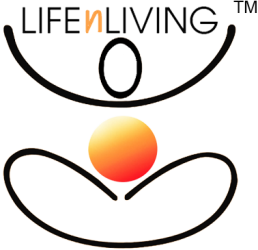
It is strange the way people are willing to talk about their physical ailments and the treatments they are receiving, including physical therapy but are unwilling to speak about the emotional and psychological problems they face and the help they need to get over them. No human being can exist in isolation – we all exist within familial, social and professional frameworks. The mental and emotional stress we face can often be far more serious and have a greater impact on our wellbeing and quality of life than the physical problems. The COVID-19 pandemic is of course something that no one imagined would happen and hence was never planned for. The psychological problems that arise from being locked down, fears about professional losses or damaged relationships and the isolation, all work to cause high stress levels. It is similar to humanity being involved in a serious car accident. Some people may escape without injury and continue with their lives. Others may be injured, through no fault of their own and need help and support to rebuild their lives.
The Problems
COVID-19 has affected people in different ways. Among the most common effects of the pandemic are the following:
- COVID-19 has isolated people and cut them off from their traditional support structures. Working from home means that the social interaction with co-workers in the office environment is not available. This means that there is no way to relate to others and discuss common problems and issues in an informal manner. This becomes a breeding ground for insecurities about work and career progress.
- Lockdown has meant staying at home. While this may not seem to be a major problem, the inability to go out and experience different social environments can make people feel isolated which in turn can result in people becoming withdrawn and depressed.
- Although being at home because of the lockdown often results in the family spending more time together, this too can cause problems. Minor irritants that would otherwise be forgotten in moments can become major issues because of the constant company of the same people. This can cause verbal and physical reactions that could seriously damage relationships. Isolating oneself emotionally, rather than dealing with the pressures and irritations can lead to the breakup of previously strong relationships.
Finding the Help You Need
Just as physical problems require physical therapy, dealing with tension, stress and anxiety too requires therapy to enable effective recovery. In such times of stress and anxiety, family and friends can be a major support. However, it must not be overlooked that this kind of subjective (relationship based) support, although well meaning, may cause problems to exacerbate further. Also, at times, it is the family and friends that are actually contributing to the problem, without meaning to, because of their attitude and behaviour. Who does one turn to? The answer is professional counselling. A reputed counselling organization will have qualified and experienced counsellors available to work with the people who seek help. Since counselling is their vocation, they will be able to provide the best possible guidance on how to deal with the issues. Because they have no personal involvement with the people they are helping, they can be objective and ensure that the most effective support is always provided. COVID-19 has caused a huge amount of stress and tension. Just like how you need a physical therapist to help you recover from physical injury, you need professional counselling to give you the support you need to get over the impact of COVID-19 in your life.
Summary: The Hidden Dangers of COVID-19
The world has focused on the physical dangers that come with a COVID-19 infection. What is often overlooked, but is just as dangerous, is the psychological stress and tension that even just the thought of the disease causes. Learning to deal with the pressure is the key to good mental health.
